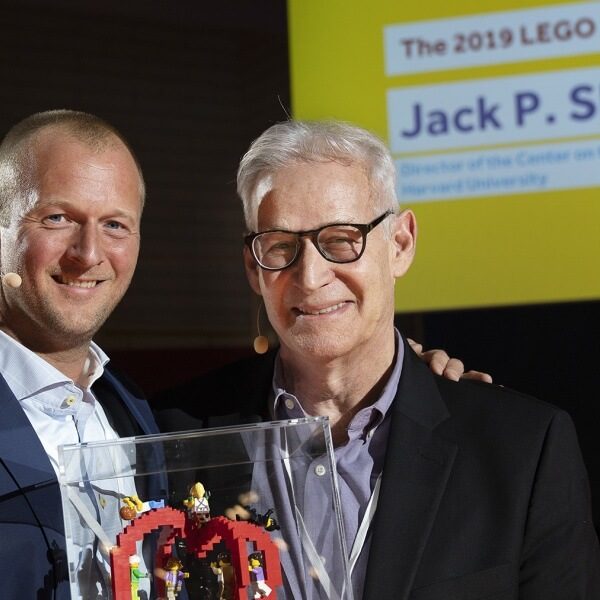Global teacher prize offers Australian ECTs a chance to win US$1 million

Peter Tabichi, winner of the US$1 million Varkey Foundation Global Teacher Prize 2019, says Australian teachers “deserve huge recognition for the key role they play in building a brighter new decade for Australia in the face of global challenges such as climate change, conflict, inequality and automation”, encouraging them to enter for consideration in the 2020 awards.
Mr Tabichi encouraged Australian teachers of children of all ages, including early childhood teachers (ECTs) to apply for the 2020 prize “so their stories can be shared and we can learn from the great work they do in preparing young people to meet the challenges and opportunities of a new decade”.
A maths and physics teacher from Pwani Village, in Nakuru, Kenya, Mr Tabichi said that during the Global Teacher Prize ceremony, he was struck by the innovative qualities of Australian teachers, saying “I met so many Australian teachers that are innovative in how they inspire and engage their pupils in lessons. They really have a passion for their job and deserve a spotlight thrown on the important work they do in shaping the future of Australia through the children they teach.”
He spoke about the challenges of teaching in Nakuru, with many students facing “tremendous challenges” having grown up in poverty.
“Many come to school with their bellies empty, their hand-to-mouth lives made all the harder by the ravages of drought and climate change. But with a good education, they at least have hope for the future and the tools to tackle their very real challenges,” he said.
While not all students face the same challenges as those Mr Tabichi teaches, he noted that each teaching environment “brings its own challenges, including automation of the workforce, prejudice, war and want”.
“But 2020 can see the start of a better, brighter decade in which we can begin to overcome the many challenges people face around the world if we can provide a great education for all. That starts with great teachers growing the great minds the next generation needs. That is why I encourage amazing Australian teachers to apply for the Global Teacher Prize 2020,” he said.
Sunny Varkey, founder of the Global Teacher Prize said he wanted to create a platform where teachers had the chance to highlight key issues of importance to the world. An ECT winning this award would provide an amazing opportunity to globally highlight the profound importance of education in the earliest years of life.
“If they become 2020 finalists or one very special teacher even becomes the winner then we will look at new and exciting ways to tell their stories to every stakeholder in education – from pupils and parents to CEOs and Presidents. We need to give teachers a seat at the top table as they shape the future everyday through the children they teach,” Mr Varkey said.
Many Australian teachers have made the finals or been shortlisted for the Global Teacher Prize since it was first awarded in 2015. Although the majority of teachers highlighted below are from secondary school contexts, it is important to note that the prize is open to teachers who teach children age 4+ in an early years government-recognised curriculum.
Teachers nominated must spend at least 10 hours per week teaching and plan to remain in the profession for the next 5 years.
Previous Australian nominees include:
- Yasodai Selvakumaran, a history and society and culture teacher, at Rooty Hill High School, New South Wales, was a top 10 finalist for this year’s prize, while Peter Gurrier-Jones, a special education teacher at The Hills School, Northmead made the top 50 shortlist.
- Eddie Woo, a mathematics teacher from Cherrybrook Technology High School, Sydney, was a top 10 finalist for the 2018 prize, having been selected from over 30,000 nominations and applications from 173 countries around the world.
- Sarah Mathews, a science and mathematics teacher from Brisbane Bayside State College, and Wilbur Klein, Principal at Tjuntjuntjara Remote Community School, Western Australia, both made the shortlist for the 2018 prize.
- Ken Silburn, a science teacher at Casula High School, south-west Sydney, was a top 10 finalist for the 2017 prize, and Richard Johnson, a science teacher at Rostrata Primary School, Perth, Western Australia, for the 2016 prize.
- Cameron Paterson, Director of Learning & Teaching at Shore School in New South Wales, and Alexandra Harper, a teacher at Redlands, Sydney, were both shortlisted for the 2015 prize.
Nominations and applications opened in early August for the US$1 million award, which is now in its sixth year and the largest prize of its kind in education.
Applications are invited from teachers directly, with nominations from children and families also encouraged. In the event that teachers are being nominated, the person nominating them will write a brief description online explaining why. The teacher being nominated will then be sent an email letting them know they’ve been nominated and inviting them to apply for the prize.
Applicants can apply in English, Mandarin, Arabic, French, Spanish, Portuguese and Russian.
Nominations and applications can be made at www.globalteacherprize.org and the closing date for applications is Monday 14 October 2019.
More information is available on the website, here.
Popular

Policy
Practice
Provider
Quality
NSW Government launches sweeping reforms to improve safety and transparency in early learning
2025-06-30 10:02:40
by Fiona Alston

Quality
Provider
Policy
Practice
WA approved provider fined $45,000 over bush excursion incident
2025-07-01 07:00:01
by Fiona Alston

Workforce
Policy
Quality
Practice
Provider
Research
ECEC must change now, our children can’t wait for another inquiry
2025-07-02 07:47:14
by Fiona Alston













